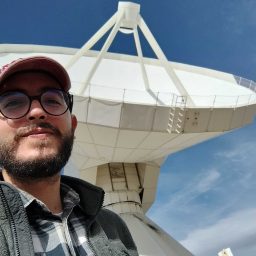Coffee talks
Friday 07/02/2025 @ 11:30, Sala riunioni quarto piano e on line (meet.google.com/sue-bwvk-axf)
Davide Pelliciari (Università di Bologna, BO, Italy), "The Fast Radio Burst phenomenon as seen at low frequencies by the Northern Cross radio telescope"
I will present recent advancements on the study of fast radio bursts (FRBs) – short, energetic radio flashes of extragalactic origin, with typical durations of a millisecond – through low frequency observations mostly conducted with the Northern Cross radio telescope. In particular, we investigated deeper the FRB–magnetar link, through a long radio monitoring of a sample of nearby galaxies. Indeed, although magnetars are the most invoked progenitors of FRBs, it is not clear which fraction of the FRB population can be linked to magnetars similar to the ones observed in our galaxy. Moreover, the FRB population can be essentially classified into one-off (if they are observed only once) and repeating sources, the latter representing only ~7% of the known population. It is not known, nowadays, whether or not the two populations represent separate physical classes of sources. I will present observations conducted at 408 MHz and 1.4 GHz of FRB 20220912A, one of the most active repeaters known, aimed at characterizing its energy distribution and spectro-temporal properties, which can shed light on both the physics of the FRB mechanism, as well as on the repeaters–one-off dichotomy. Repeating FRBs also offer the chance to pinpoint their location up to an angular resolution of the order of a few tens of milliarcseconds. Such resolution allows one to associate the FRB to a specific environment (e.g., star forming region, nuclear region, star clusters) within its host galaxy, eventually revealing a persistent counterpart up to now associated with a handful of repeating FRBs. I will finally show how systematic uncertainties in the data calibration chain of VLBI observations can affect the accuracy of FRB localizations and can have an impact on its association with the specific local environment in which it resides.

